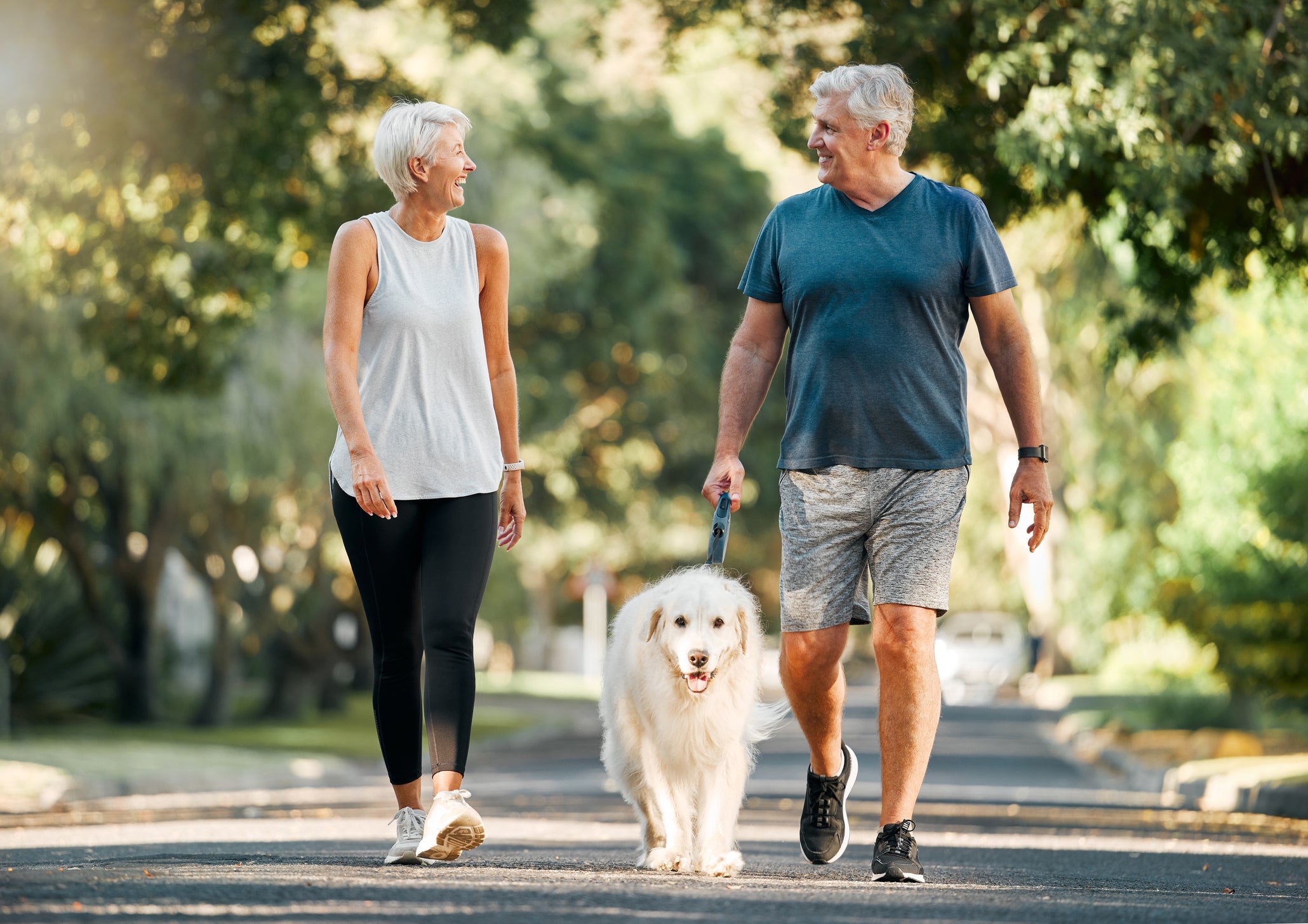Menopause is a natural yet challenging phase in a woman's life, signalling the end of her reproductive years. With it comes an array of physical and emotional changes - from weight gain and hot flushes to mood swings and disrupted sleep. Fortunately, exercise emerges as a formidable ally, empowering women to navigate this life-changing transition with grace and vitality.
Unpacking the Menopausal Journey
Before delving into the role of exercise, let's briefly understand what menopause is. Menopause typically occurs in a woman's late 40s or early 50s and is defined as the cessation of menstrual periods for 12 consecutive months. It's driven by a decline in the production of key hormones, particularly estrogen and progesterone. This hormonal shift brings a cascade of changes to the female body.

Tailoring Your Exercise Regimen
Cardio for Heart Health and Mood Stability
Cardiovascular exercises like brisk walking, jogging, swimming, and cycling are stellar options for boosting heart health, controlling weight, and modulating mood swings.
Strength Training to Combat Muscle Loss
Resistance exercises using weights or resistance bands are essential to counter muscle loss, thus helping sustain your metabolic rate and improve bone density.
Yoga and Pilates for Balance and Stress Relief
Yoga and Pilates offer an excellent blend of flexibility, balance, and strength—ideal for stress relief and reducing fall risk.
Mindfulness through Movement
Tai chi and qigong combine gentle movements with deep breathing, aiding in reducing anxiety and fostering relaxation.
The Biology of Movement in Menopause
Exercise works in four key ways to alleviate the challenges of menopause. It influences the biology of movement, impacting the body's response to hormonal changes:
- Bone Health: Osteoporosis is a concern during menopause due to reduced estrogen levels. Weight-bearing exercises, like walking or strength training, stimulate bone formation and increase bone density, reducing the risk of fractures.
- Metabolism: As estrogen levels drop, metabolism slows down, leading to weight gain. Regular physical activity helps rev up the metabolism, making it easier to manage weight.
- Hormone Regulation: Exercise can have a positive impact on the endocrine system, influencing hormone balance. It may help alleviate some menopausal symptoms like hot flushes and mood swings.
- Mood Enhancement: Physical activity triggers the release of endorphins, the body's natural mood boosters. It can help combat depression and anxiety, which are more common in menopausal women.

Exercise and Hormonal Pathways
Estrogen and Exercise
Exercise can lead to a modest increase in estrogen production within fat cells. This may help alleviate some menopausal symptoms that result from estrogen deficiency, such as hot flushes.
Cortisol and Stress Management
Regular exercise can lower the body's production of cortisol, a stress hormone. High cortisol levels are linked to increased fat storage, particularly around the abdominal area, and can exacerbate weight gain during menopause.
Endorphins
As mentioned earlier, exercise triggers the release of endorphins, which are known to reduce pain and elevate mood. This can help counteract the mood swings and irritability often associated with menopause.
Insulin Sensitivity
Menopause is associated with insulin resistance, which can lead to weight gain and a higher risk of type 2 diabetes. Exercise improves insulin sensitivity, helping to mitigate these risks.
The Impact on Your Body, Beyond Hormones
- Cardiovascular Risks: Exercise can mitigate the increased risk of heart diseases often associated with menopause.
- Cognitive Benefits: Physical activity is correlated with enhanced cognitive functions, offering relief from menopausal "brain fog."
- Quality of Sleep: Regular exercise regimes have been shown to improve sleep quality, a common issue during menopause.
- Joint Health: Proper exercise can alleviate joint pain and stiffness, commonly reported during menopause.
The Inspiring World of Weightlifting and Joan MacDonald
In recent years, weight-bearing exercises have gained immense popularity, particularly among menopausal women. Joan MacDonald, a woman in her mid-70s, has emerged as a beacon of what's possible. Defying stereotypes, Joan has transformed her life, moving from battling multiple health issues to becoming a symbol of vitality and strength. Her story serves as a powerful inspiration, affirming that it's never too late to embrace the transformative power of exercise, regardless of age or menopausal status.
Exercise is a powerful tool that can help women in menopause navigate this significant life transition with grace and vitality. It affects the biology of movement, influences hormone pathways, and positively impacts various body systems. By staying active and engaging in a variety of physical activities, women can better manage the challenges of menopause, maintain their overall health, and improve their quality of life during this important phase. So, grab your sneakers and embark on a journey to a healthier, more fulfilling menopausal life with the help of exercise.
Ready to elevate your menopausal health journey? Click here to browse through our specially-formulated Menopause Collection. Let Nature's Help be your partner in navigating this important life phase.
Written by Mona Hecke
Mona Hecke is a degree qualified Naturopath, nutrition specialist and health and wellness writer.
With over 20 years in the health industry, beginning with a focus on children and families, and a bestselling book ‘The Lunchbox Revolution’, Mona is now empowering women through education and conversation to take action and embrace change. Gut health, mindfulness, nutrition, hormones, and menopause are the topics that women want and need to know to create their healthy future.
Mona holds certifications in Lifestyle Coaching, Kinesiology, holistic herbal medicine, and nutrition.
A recognised leader in the health industry, Mona’s strong social media presence and passion for influencing change will continue to be a catalyst for health reform for the benefit of every Australian.






